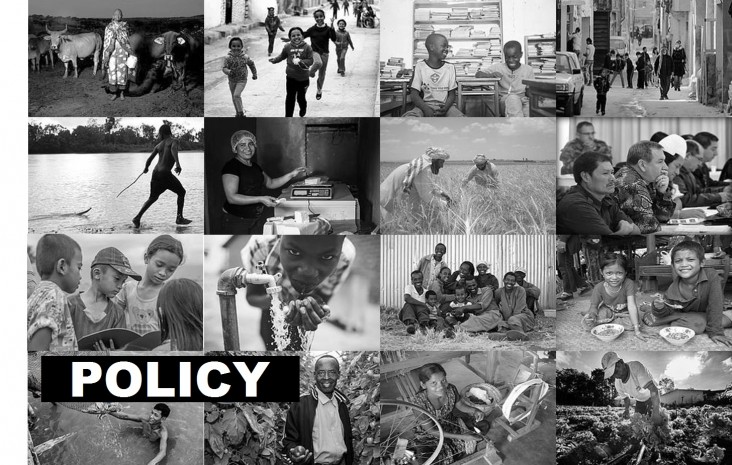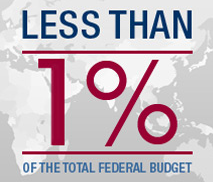
USAID policies, strategies, frameworks and visions are developed in close partnership with Washington bureaus, international field missions and other partners. They codify the agency's corporate position in key areas, based on evidence and analysis, and provide guidance to the field.
U.S. Development Policy in Context

USAID activities are informed by the President's Policy Directive on Global Development (PPD-6). The PPD-6 calls for the elevation of development as a core pillar of American power and charts a course for development, diplomacy and defense to reinforce and complement one another in an integrated, comprehensive approach to national security. The Quadrennial Diplomacy and Development Review (QDDR) supports the PPD-6 and the National Security Strategy, and proposes steps to strengthen our diplomatic and development capabilities to better meet our foreign policy goals. Leading through civilian power means directing and coordinating the resources of all America's civilian agencies to prevent and resolve conflicts; help countries lift themselves out of poverty into prosperous, stable and democratic states; and build global coalitions to address global problems.
The USAID Policy Framework operationalizes the policy guidance set forth in the PPD-6 and QDDR, clarifies USAID’s core development priorities, explains how operational principles will be applied across USAID, and presents an agenda for institutional reform.
USAID policies, strategies, frameworks and visions support our efforts to achieve the agency's mission of partnering to end extreme poverty and promote resilient democratic societies while advancing our security and prosperity.
Policies, Strategies, Frameworks and Visions
The scope, intent and composition of USAID policies, strategies, frameworks and visions vary according to subject matter and issue area. They are intended to convey the thinking of the agency’s leadership and, in some cases, make agency commitments to key stakeholders. As such, they seek to make an operational difference in the effectiveness of USAID’s development programs. Policies, strategies, frameworks and visions are developed according to a common set of procedures (ADS 200) that ensure they are grounded in the best available evidence, reflect good development practice and clearly articulate the agency's collective vision. They illustrate USAID's understanding of the nature of challenges within a certain theme and the best approaches for accomplishing agency goals in this area.
Policy Registry
BIODIVERSITY

CLIMATE CHANGE

Climate Change & Development: Clean Resilient Growth Strategy [PDF]
CONFLICT

The Development Response to Violent Extremism & Insurgency: Putting Principles Into Practice Policy [PDF]
DEMOCRACY, HUMAN RIGHTS AND GOVERNANCE

Counter Trafficking in Persons Policy [PDF]

Strategy on Democracy, Human Rights & Governance [PDF]

Guidance for Programming in Closed Spaces
DEVELOPMENT PRACTICE

Local Systems: A Framework for Supporting Sustained Development [PDF]
EDUCATION

Education: Opportunity Through Learning Strategy
EVALUATION

Evaluation: Learning from Experience Policy
EXTREME POVERTY
Vision for Ending Extreme Poverty [PDF]
GENDER EQUALITY

Ending Child Marriage & Meeting the Needs of Married Children: The USAID Vision for Action [PDF]

Gender Equality & Female Empowerment Policy [PDF]
HEALTH

Health Systems Strengthening Vision [PDF]

Multi-Sectoral Nutrition Strategy 2014-2025 [PDF]

Ending Preventable Maternal Mortality: USAID Maternal Health Vision for Action [PDF]
NATIONAL SECURITY
Policy on Cooperation with the Department of Defense
RESILIENCE

Building Resilience to Recurrent Crisis Policy & Program Guidance [PDF]
SCIENCE AND TECHNOLOGY
Scientific Integrity Policy [PDF]
Scientific Research Policy [PDF]
URBANIZATION

Sustainable Service Delivery in an Increasingly Urbanized World Policy [PDF]
TRADE
Policy for Trade Capacity Building
WATER

Water & Development Strategy 2013-2018 [PDF]
YOUTH

Youth in Development: Realizing the Demographic Opportunity Policy [PDF]







Comment
Make a general inquiry or suggest an improvement.